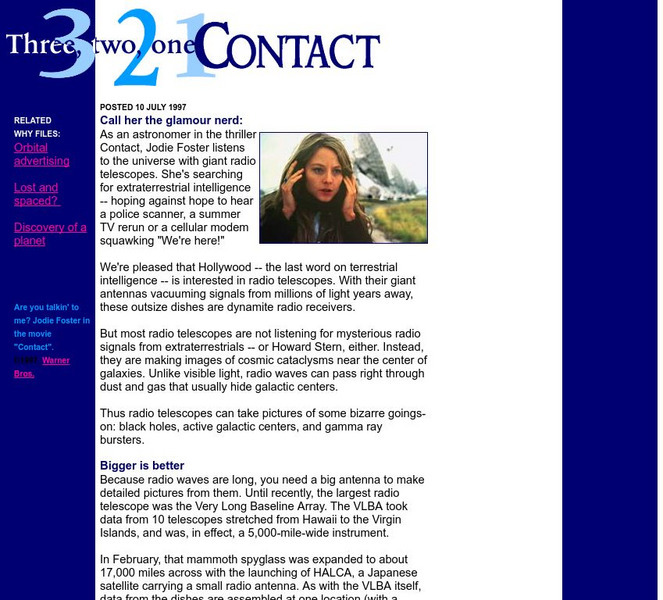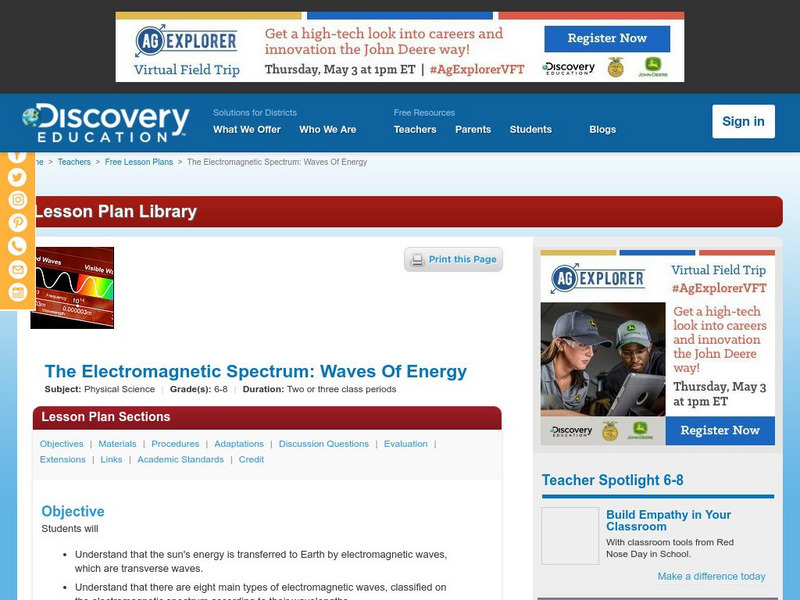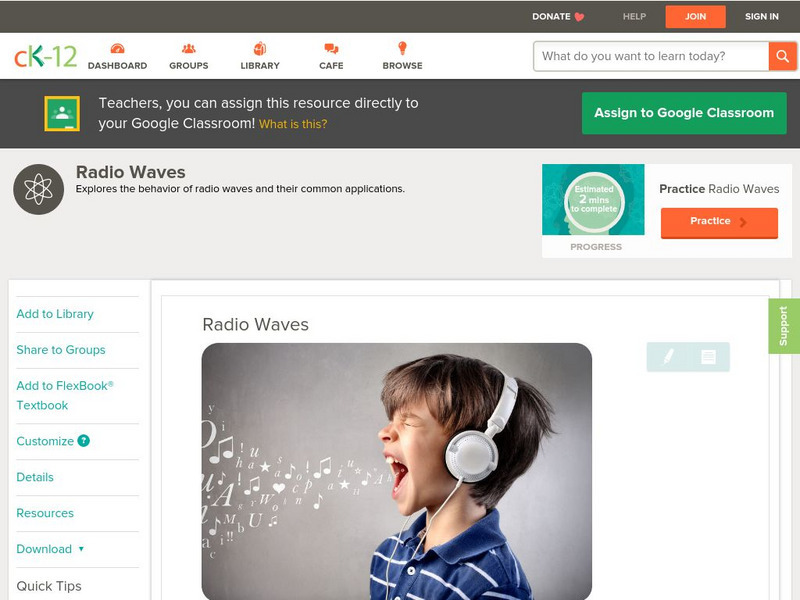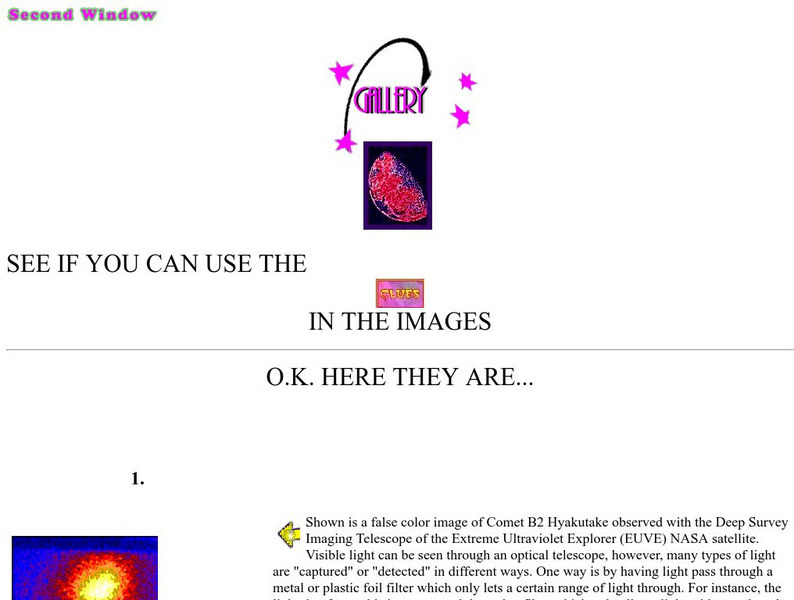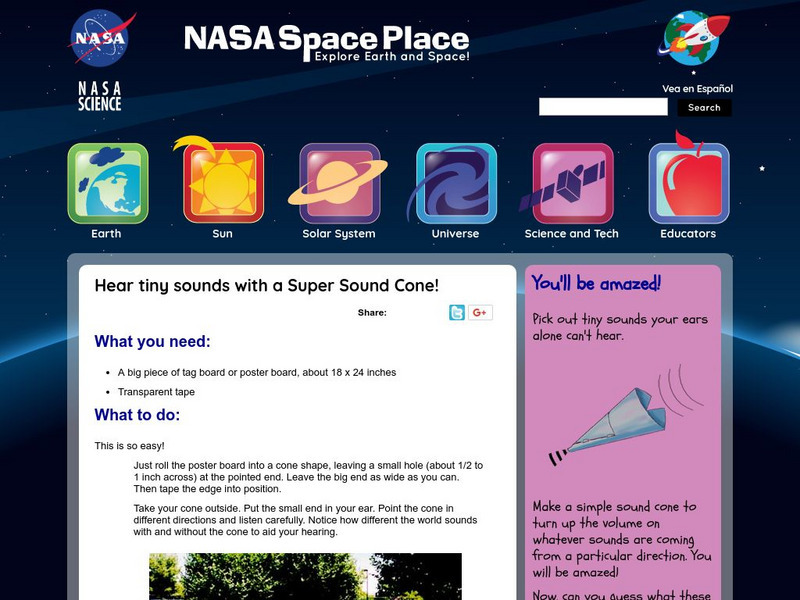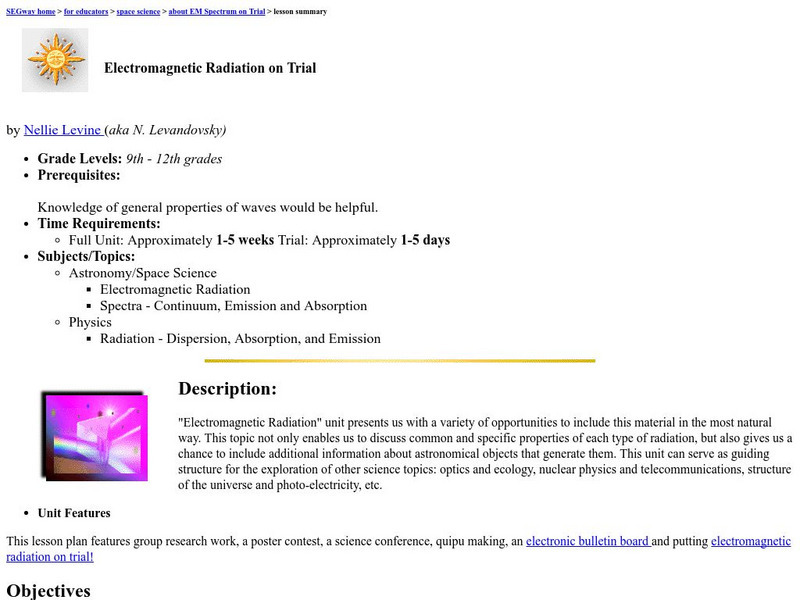Curated OER
Telecom
A brief set of notes opens the door to telecommunication via radio. The formula for the speed of radio waves is followed by the components of a radio. That's about all there is in this physical science PowerPoint.
University of Colorado
University of Colorado: Ph Et Interactive Simulations: Radiowaves and Electromagnetic Fields
Broadcast radio waves from KPhET. Wiggle the transmitter electron manually or have it oscillate automatically. Display the field as a curve or vectors. The strip chart shows the electron positions at the transmitter and at the receiver.
University of Colorado
University of Colorado: Physics 2000: Cat Scans: Projecting Shadows
This page and the three pages which follow discuss how X-ray technology can be used to produce an image of the human body. Discussion is understandable and highly intriguing. Several interactive animations allow the visitor to explore...
Other
Harvard Medical School: Magnetic Resonance Imaging (Mri)
This Beth Israel Deaconess Medical Center site offers a comprehensive look at MRI exam phases, preparation, technology, equipment, safety, and research. Images and labeled diagrams are also provided on this site.
University of Colorado
University of Colorado: Physics 2000: Electromagnetic Waves
Using a student-teacher dialogue format, this page discusses the nature of light as an electromagnetic wave and the electromagnetic spectrum.
University of Wisconsin
The Why Files: 3 2 1 Contact, Don't Touch That Dial
A discussion of reflecting telescopes and their use in radio astronomy. The types of information gained from and the research emphasis fueled by such telescopes is described. Site uses Hollywood references and a humorous style.
WebMD
Medicine Net: Magnetic Resonance Imaging
This site from MedicineNet.com gives an MRI description, why they're performed, risks, and patient preparation. A thorough explanation of the process is provided.
NASA
Nasa: Electromagnetic Spectrum: Radio Waves
Radio waves have the longest wavelengths in the electromagnetic spectrum. This NASA article discusses AM, FM, TV, cell phone, as well as radio astronomy, which all use this technology.
Discovery Education
Discovery Education: The Em Spectrum: Waves of Energy
Students are introduced to the electromagnetic spectrum through this group research activity. Each group investigates a different wavelength range within the em spectrum and reports back to class. Discussion ideas also included.
CK-12 Foundation
Ck 12: Physical Science: Radio Waves
[Free Registration/Login may be required to access all resource tools.] Radio waves and how they are used for AM and FM radio and television.
NASA
Nasa: The Inspire Project
An educational site devoted to the study of radio signals in our environment. The project seeks schools, classrooms, and individual students and teachers who are willing to participate in the collection and analysis of radio signal data....
University of California
Center for Science Education: Gallery
A gallery of astronomy images which depict galaxies, comets, the moon, planets, nebulae, supernovae as seen in various regions of the electromagnetic spectrum. Each image in the gallery is described. Fascinating!
NASA
Nasa: The Space Place: Have Super Hearing With a Super Sound Cone
This site from NASA provides an interesting approach to the subject. How do messages travel in space and how do we intercept those messages on Earth? Find out the answers as well as find out how NASA's giant dish antennas work.
University of California
Center Science Edu.: Electromagnetic Radiation on Trial
Here is a 1-5 day unit on electromagnetic radiation that features a teacher guide and student activities with extensions.





